
Veronetta: The Hidden Gem of Verona
Veronetta is a charming neighborhood located just across the Adige River from Verona’s bustling historic center. Known for its bohemian vibe, Veronetta seamlessly blends history, culture, and modernity. As you stroll through its narrow, winding streets, you’ll encounter an array of historic buildings, colorful murals, and quaint cafes that make this area truly unique. One of the neighborhood’s highlights is the Giardino Giusti, a beautifully landscaped Renaissance garden that offers panoramic views of the city. For history buffs, Veronetta is home to the University of Verona, established in the 14th century, which adds a youthful and intellectual atmosphere to the area. The neighborhood's rich history is also evident in its ancient churches and medieval architecture. Veronetta is a haven for art lovers. Various galleries and cultural centers frequently host exhibitions and performances, making it a vibrant cultural hub. The local cuisine is another major draw, with numerous trattorias and wine bars offering authentic Italian dishes and local wines. Whether you’re interested in history, art, or simply soaking up the local atmosphere, Veronetta offers a little something for everyone.
Local tips in Veronetta
- Visit Giardino Giusti early in the morning to avoid crowds and enjoy the garden in peace.
- Wear comfortable shoes; the cobblestone streets can be tricky to navigate.
- Check out local event listings for art exhibitions and cultural performances.
- Try the local wine at one of the neighborhood's cozy wine bars for an authentic taste of the region.
Veronetta: The Hidden Gem of Verona
Veronetta is a charming neighborhood located just across the Adige River from Verona’s bustling historic center. Known for its bohemian vibe, Veronetta seamlessly blends history, culture, and modernity. As you stroll through its narrow, winding streets, you’ll encounter an array of historic buildings, colorful murals, and quaint cafes that make this area truly unique. One of the neighborhood’s highlights is the Giardino Giusti, a beautifully landscaped Renaissance garden that offers panoramic views of the city. For history buffs, Veronetta is home to the University of Verona, established in the 14th century, which adds a youthful and intellectual atmosphere to the area. The neighborhood's rich history is also evident in its ancient churches and medieval architecture. Veronetta is a haven for art lovers. Various galleries and cultural centers frequently host exhibitions and performances, making it a vibrant cultural hub. The local cuisine is another major draw, with numerous trattorias and wine bars offering authentic Italian dishes and local wines. Whether you’re interested in history, art, or simply soaking up the local atmosphere, Veronetta offers a little something for everyone.
Iconic landmarks you can’t miss
Giusti Garden
Explore the serene beauty of Giusti Garden in Verona, a historical botanical garden featuring exquisite landscapes and breathtaking views perfect for relaxation.
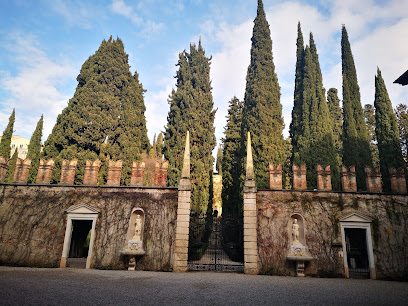
Museo Archeologico al Teatro Romano
Explore the rich history and ancient artifacts at Museo Archeologico al Teatro Romano, a key attraction in Verona showcasing Roman heritage.
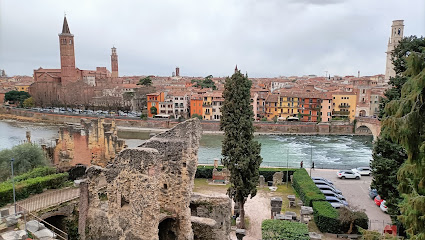
Torre dei Lamberti
Discover the breathtaking views and rich history of Verona from Torre dei Lamberti, an iconic landmark offering a glimpse into the city's vibrant past.
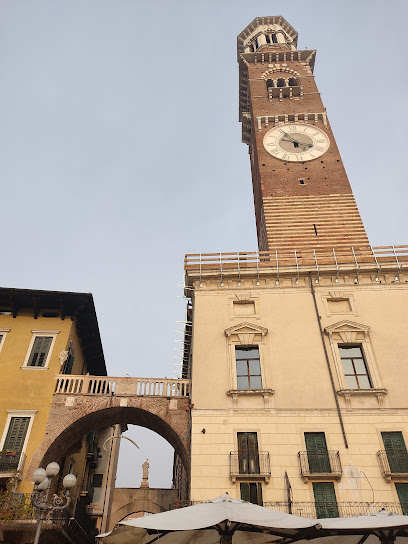
Porta Vesco Verona
Discover the majestic Porta Vescovo, an iconic historical landmark in Verona, where the rich past meets vibrant local culture.
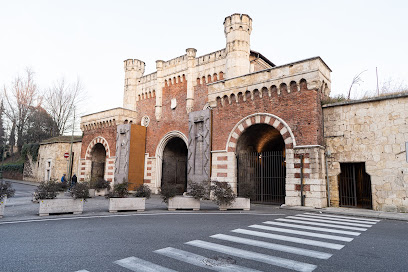
Bastione delle Maddalene
Discover the enchanting Bastione delle Maddalene, a historical landmark in Verona, showcasing stunning architecture and breathtaking views.
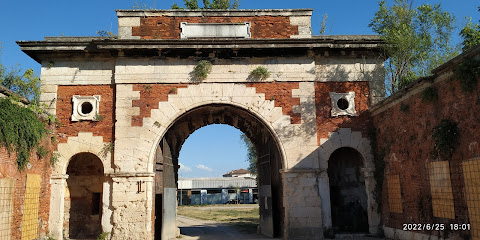
Statua di Giulietta
Discover the magic of love at Juliet's Statue in Verona, a historic symbol of romance and inspiration for lovers from around the world.
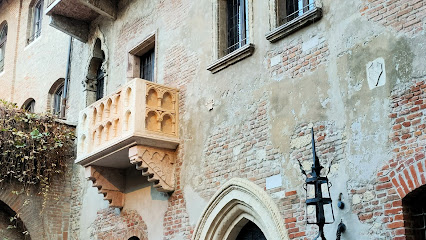
Case dei Mazzanti
Explore Case dei Mazzanti, a captivating historical landmark in Verona, Italy, showcasing stunning frescoes and rich cultural heritage.
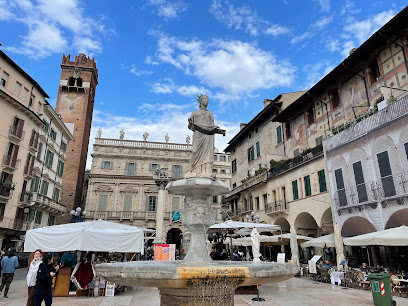
Verona Vecchia
Discover the historical charm and architectural wonders of Verona Vecchia, a captivating district in the heart of Verona, Italy.
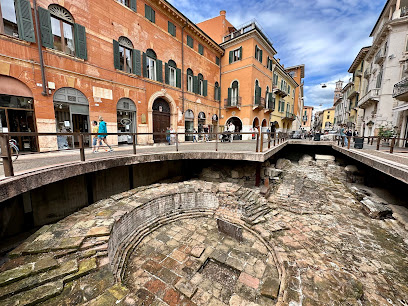
Sentiero panoramico antiche mura di Verona
Discover the captivating history and breathtaking views along the Sentiero panoramico antiche mura di Verona, a must-visit landmark in Italy.
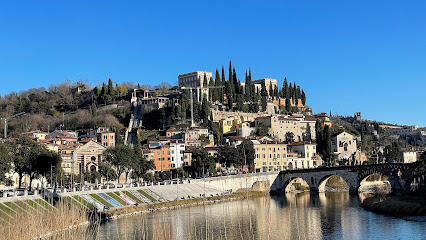
Verona
Discover the romance and history of Verona, Italy - home to ancient ruins, stunning architecture, and the legendary tale of Romeo and Juliet.

Unmissable attractions to see
Tomba di Giulietta
Discover the enchanting Tomb of Juliet in Verona, a must-visit for lovers and literary enthusiasts, steeped in romance and rich history.
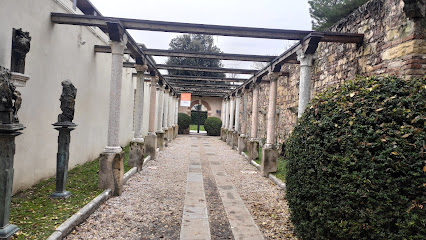
Giusti Garden
Explore the enchanting Giusti Garden in Verona, a botanical paradise featuring stunning landscapes, historical charm, and serene pathways perfect for relaxation.
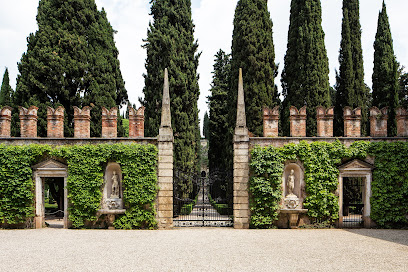
Essential places to dine
Re Teodorico
Experience authentic Italian cuisine at Re Teodorico while enjoying breathtaking views of Verona's enchanting landscape.
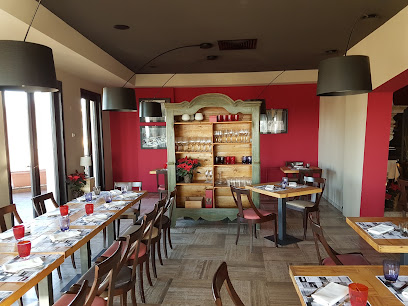
Antica Bottega del Vino
Discover authentic Italian cuisine and an exquisite wine selection at Antica Bottega del Vino in Verona.
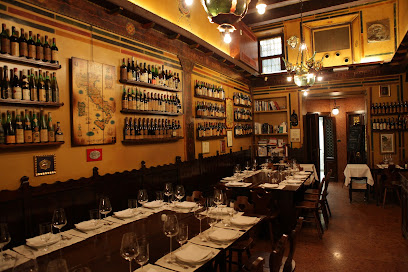
Vecio Macello
Discover authentic Italian cuisine at Vecio Macello in Verona - where tradition meets flavor in a charming setting.
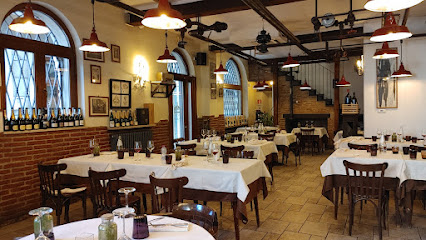
Ristorante Antica Torretta - Verona centro storico
Experience authentic Italian cuisine at Ristorante Antica Torretta in Verona's historic center – where tradition meets culinary artistry.
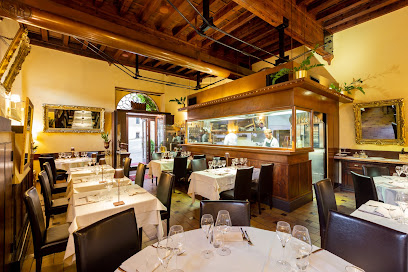
Osteria Ponte Pietra Ristorante
Discover the flavors of Italy at Osteria Ponte Pietra Ristorante in Verona - where culinary excellence meets breathtaking views.
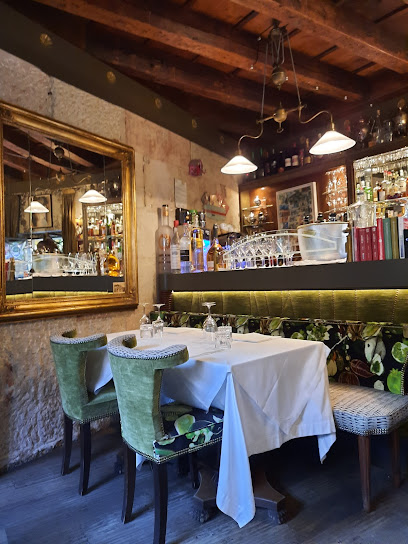
Antica Trattoria Pero D'Oro
Experience authentic Northern Italian cuisine in Verona at Antica Trattoria Pero D'Oro—where every meal tells a story.
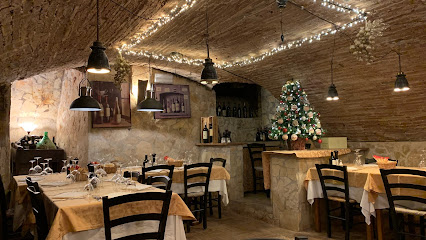
Ristorante Du Schei Verona
Experience authentic Italian cuisine at Ristorante Du Schei in Verona – where every dish tells a story of tradition and flavor.
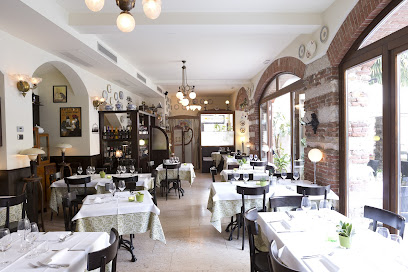
Ristorante Il Desco
Discover the culinary excellence of Ristorante Il Desco in Verona - where traditional Italian cuisine meets modern creativity.
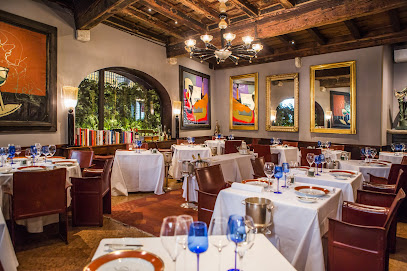
Osteria la Fontanina - Teatro Romano, Ponte Pietra
Experience exquisite Italian cuisine at Osteria la Fontanina while enjoying stunning views of Verona's historic Teatro Romano.
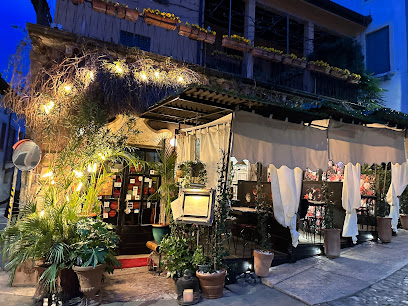
The Kitchen
Experience authentic Italian cuisine at The Kitchen in Verona – where every dish tells a story of flavor and tradition.
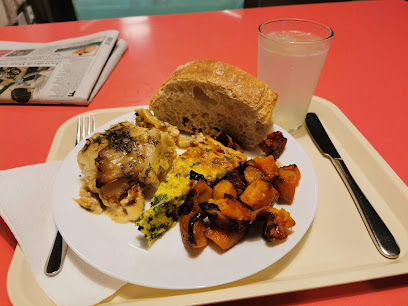
Markets, malls and hidden boutiques
Romeo e Giulietta Shop
Explore the enchanting Romeo e Giulietta Shop in Verona for unique souvenirs and a taste of Shakespearean romance.
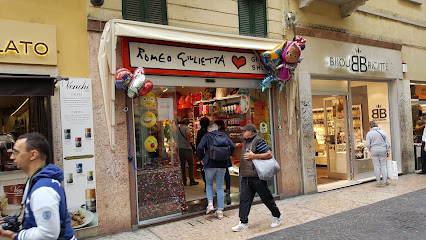
The Merchant of Venice - Verona store
Discover the luxurious scents of The Merchant of Venice in Verona, where fragrance meets Italian artistry and history.
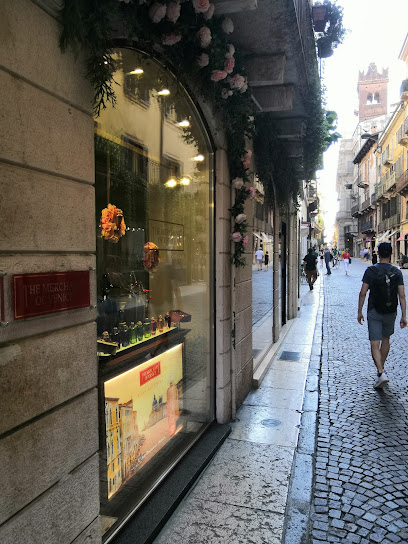
GIULIETTAVERONA® Shop
Explore the charm of GIULIETTAVERONA® Shop in Verona, a haven for exquisite fashion accessories and handcrafted artistry.
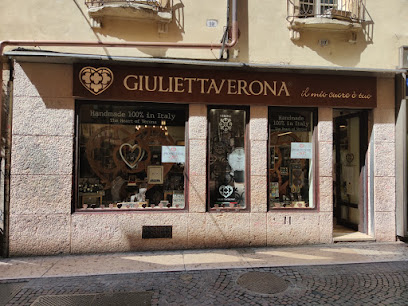
ALLEZ LES MOEUFS boutique
Explore unique fashion at ALLEZ LES MOEUFS boutique, Verona's premier clothing store offering stylish apparel and local charm.
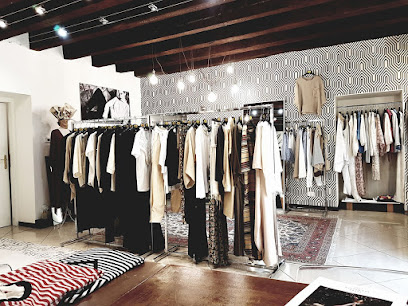
Le Cose Di Chiara
Explore the charm of Verona at Le Cose Di Chiara, a unique gift shop filled with artisanal treasures and local delights.
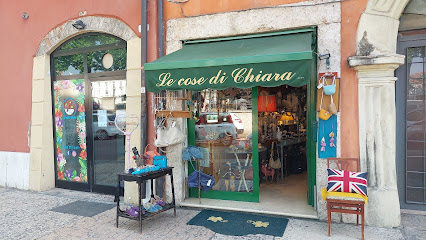
K1nd of Broken Cup
Explore K1nd of Broken Cup in Verona, where vintage fashion comes alive with unique clothing and accessories that reflect timeless style and sustainability.
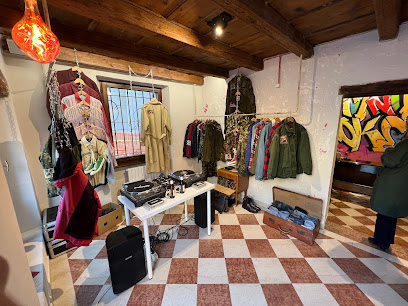
WF SAS Banco di Souvenir 25 e 33
Discover unique handcrafted souvenirs and local crafts at WF SAS Banco di Souvenir 25 e 33, a charming gift shop in Verona's historic Piazza Erbe.
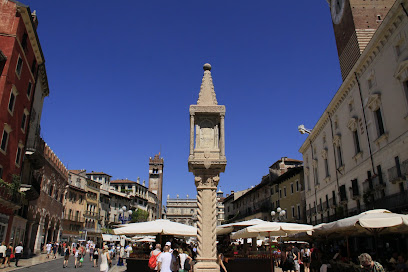
Excel Boutique
Discover the essence of Italian fashion at Excel Boutique in Verona, where style meets sophistication in a charming boutique setting.
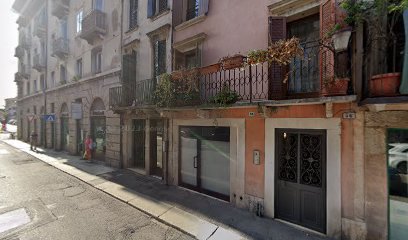
Req concept store
Discover unique gifts and local treasures at Req Concept Store in Verona, where every purchase supports local artisans and captures the city's essence.
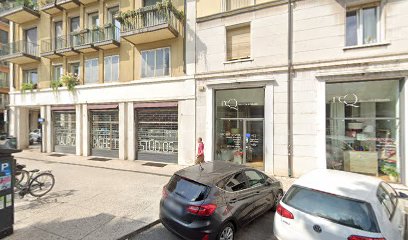
Boutique Del Regalo Sas
Discover unique gifts and souvenirs at Boutique Del Regalo Sas, the heart of Verona's charm and craftsmanship.
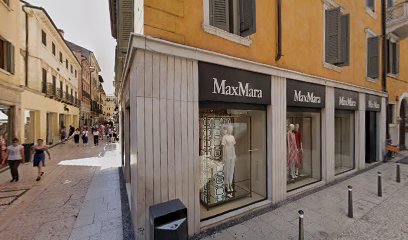
Essential bars & hidden hideouts
The Soda Jerk
Discover The Soda Jerk in Verona: a unique cocktail bar offering expertly crafted drinks and an inviting ambiance perfect for a memorable night out.
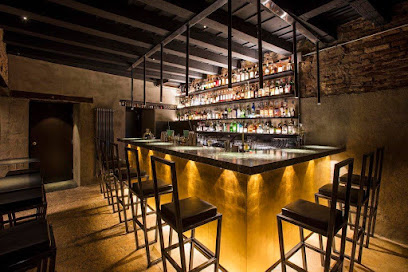
Rivamancina
Discover Rivamancina, Verona's vibrant cocktail bar offering a unique blend of exquisite drinks, delicious food, and a lively atmosphere.
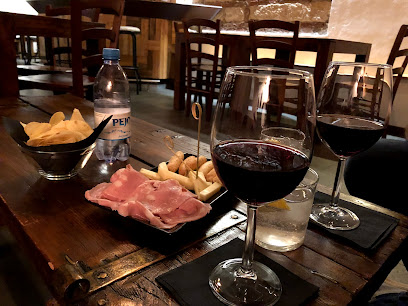
Grande Giove Cocktail bar
Indulge in exquisite cocktails in the heart of Verona at Grande Giove Cocktail Bar, where elegance meets a vibrant nightlife experience.
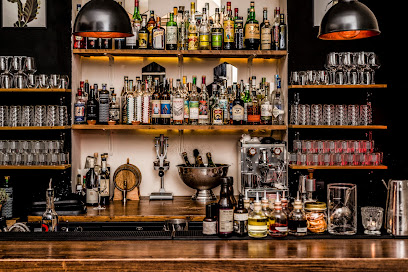
Sunrise Bar Verona
Experience the charm of Verona at Sunrise Bar, where delicious bistro fare meets a lively bar atmosphere in a picturesque setting.
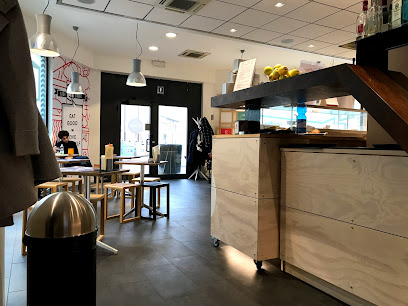
Art Café LimeOlé House
Immerse yourself in Verona's nightlife at Art Café LimeOlé House, where innovative cocktails and a vibrant atmosphere await every visitor.
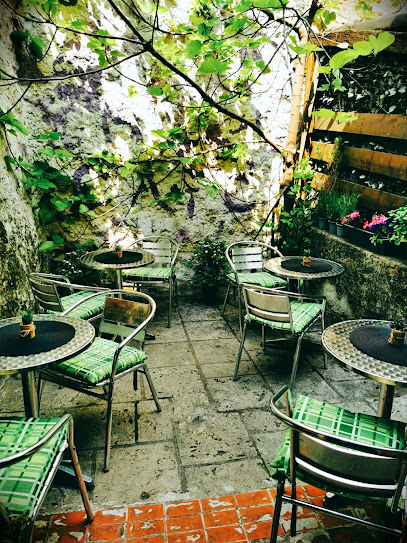
Robyz - Bar & Cucina a Veronetta
Experience the vibrant flavors of Italy at Robyz, the ultimate bar and cucina in Verona's historic Veronetta district.
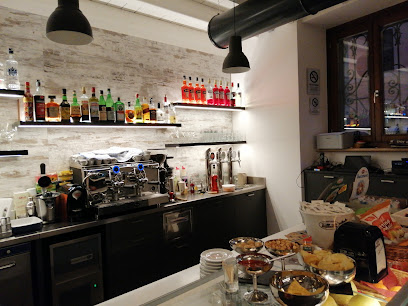
Il Veronetta
Il Veronetta: Experience the pulse of Verona with live music, local drinks, and an unforgettable night out in Italy's cultural gem.
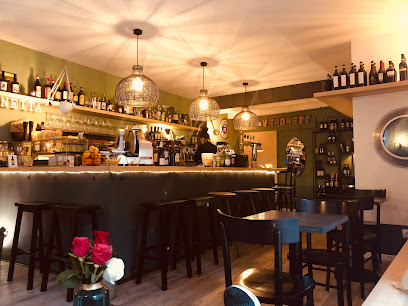
San Tomaso cocktail bar
Discover Verona's vibrant nightlife at San Tomaso Cocktail Bar, where innovative cocktails and a lively atmosphere await your visit.
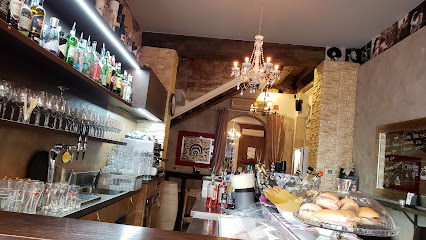
Bar al Vò
Experience the best of Verona's nightlife at Bar al Vò, where exquisite drinks meet vibrant atmosphere in a chic setting.
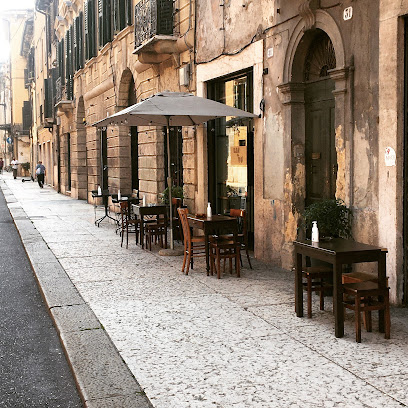
Crazy Bar
Experience the vibrant nightlife of Verona at Crazy Bar, where eclectic drinks and lively atmosphere create unforgettable memories.
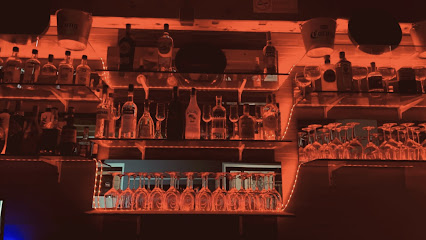
Local Phrases
-
- HelloCiao
[chow] - GoodbyeArrivederci
[a-ree-veh-der-chee] - YesSì
[see] - NoNo
[noh] - Please/You're welcomePer favore/Prego
[pair fah-voh-reh/preh-goh] - Thank youGrazie
[grah-tsee-eh] - Excuse me/SorryScusi/Mi dispiace
[skoo-zee/mee dee-spiah-cheh] - How are you?Come stai?
[koh-meh stai] - Fine. And you?Bene. E tu?
[beh-neh. eh too] - Do you speak English?Parli inglese?
[pahr-lee een-gleh-zeh] - I don't understandNon capisco
[nohn kah-pee-skoh]
- HelloCiao
-
- I'd like to see the menu, pleaseVorrei vedere il menu, per favore
[vohr-ray veh-deh-reh eel meh-noo, pair fah-voh-reh] - I don't eat meatNon mangio carne
[nohn mahn-joh cahr-neh] - Cheers!Salute!
[sa-loo-teh] - I would like to pay, pleaseVorrei pagare, per favore
[vohr-ray pah-gah-reh, pair fah-voh-reh]
- I'd like to see the menu, pleaseVorrei vedere il menu, per favore
-
- Help!Aiuto!
[ah-yoo-toh] - Go away!Vai via!
[vai vee-ah] - Call the Police!Chiamate la polizia!
[kyah-mah-teh lah poh-lee-tsya] - Call a doctor!Chiamate un dottore!
[kyah-mah-teh oon doht-toh-reh] - I'm lostMi sono perso
[mee soh-noh pehr-soh] - I'm illSono malato
[soh-noh mah-lah-toh]
- Help!Aiuto!
-
- I'd like to buy...Vorrei comprare...
[vohr-ray cawm-prah-reh] - I'm just lookingSto solo guardando
[stoh soh-loh gwar-dahn-doh] - How much is it?Quanto costa?
[kwahn-toh koh-stah] - That's too expensiveÈ troppo caro
[eh trohp-poh cahr-oh] - Can you lower the price?Può abbassare il prezzo?
[pwaw ab-bah-sah-reh eel preht-soh]
- I'd like to buy...Vorrei comprare...
-
- What time is it?Che ora è?
[keh oh-rah eh] - It's one o'clockÈ l'una
[eh loo-nah] - Half past (10)Sono le dieci e mezza
[soh-noh leh dee-eh-chee eh meh-tzah] - MorningMattina
[maht-tee-nah] - AfternoonPomeriggio
[poh-meh-ree-joh] - EveningSera
[seh-rah] - YesterdayIeri
[yeh-ree] - TodayOggi
[oh-djee] - TomorrowDomani
[doh-mah-nee] - 1Uno
[oo-noh] - 2Due
[doo-eh] - 3Tre
[treh] - 4Quattro
[kwah-troh] - 5Cinque
[cheen-kweh] - 6Sei
[say] - 7Sette
[seht-teh] - 8Otto
[oh-toh] - 9Nove
[noh-veh] - 10Dieci
[dee-eh-chee]
- What time is it?Che ora è?
-
- Where's a/the...?Dov'è un/il...?
[doh-veh oon/eel] - What's the address?Qual è l'indirizzo?
[kwahl eh leen-dee-ree-tsoh] - Can you show me (on the map)?Puoi mostrarmi (sulla mappa)?
[pwah-ee mohs-trar-mee (sool-lah mahp-pah)] - When's the next (bus)?Quando è il prossimo (autobus)?
[kwahn-doh eh eel prohs-shee-moh (ow-toh-boos)] - A ticket (to ....)Un biglietto (per ....)
[oon bee-lyet-toh (pair)]
- Where's a/the...?Dov'è un/il...?
History of Veronetta
-
Veronetta, located on the left bank of the Adige River, has its origins in the Roman era when it was part of the flourishing city of Verona. The area was initially a strategic settlement that served as a residential and commercial hub, benefiting from its proximity to the river, which facilitated trade and transportation.
-
During the Renaissance, Veronetta became a vibrant center for artists and intellectuals. The influence of prominent figures such as the painter Paolo Veronese, who was born in Verona, is still felt in the neighborhood's artistic legacy. The area is adorned with beautiful frescoes and architecture that reflect the cultural richness of this period.
-
The 13th century saw the establishment of significant religious institutions in Veronetta, including the Convent of San Domenico and the Church of Santa Maria in Organo. These sites became important centers of monastic life and education, contributing to the spiritual and cultural fabric of the neighborhood and the wider Verona region.
-
The early 19th century brought significant changes to Veronetta during the Napoleonic Wars. The area was integrated into the larger context of the French Empire, leading to various administrative reforms. The changes in governance and urban planning during this time laid the groundwork for modern development in Verona.
-
The late 19th and early 20th centuries marked a period of industrial growth in Verona, including Veronetta. Factories and workshops began to emerge, transforming the neighborhood's economy and demographics. This industrial boom attracted workers from various regions, leading to a diverse and dynamic community.
-
After World War II, Veronetta underwent significant restoration efforts to preserve its historical architecture and cultural heritage. The neighborhood has since embraced its artistic roots, becoming a hub for contemporary art, music, and cultural events, highlighting the ongoing evolution of Veronetta within the context of Verona's rich history.
Veronetta Essentials
-
Veronetta is conveniently located just across the Ponte Nuovo from Verona's historical center. You can easily reach Veronetta by walking from the city center, which takes about 10-15 minutes. If you're coming from Verona Porta Nuova train station, you can take bus line 11 or 12, which will drop you off near the entrance of Veronetta. Taxis are also available from the station, and the ride takes approximately 10 minutes.
-
Veronetta is a pedestrian-friendly neighborhood, making it easy to explore on foot. Public transport options include buses that connect Veronetta to other parts of the city, with regular service available. You can also rent bicycles from local shops or use bike-sharing services for a more active exploration of the area. Taxis are also available for those who prefer not to walk.
-
Veronetta is generally a safe neighborhood for tourists. However, it is advisable to stay alert, especially in crowded places like markets and public transport. While serious crimes are rare, petty theft can occur, particularly in areas with a high concentration of tourists. Avoid walking alone at night in poorly lit areas, especially around the outskirts of the neighborhood.
-
In case of emergency, dial 112 for police, fire, or medical assistance. The nearest hospital is Ospedale Civile Maggiore, located in the city center. It is recommended to have travel insurance that covers medical emergencies. For minor health issues, you can find pharmacies throughout Veronetta, where you can purchase over-the-counter medications.
-
Fashion: Do dress modestly, especially when visiting churches. Avoid wearing overly casual or revealing clothing. Religion: Do respect local customs and be quiet in places of worship. Public Transport: Do validate your ticket before boarding and be courteous to other passengers. Don't eat or drink on public transport. Greetings: Do greet with 'Buongiorno' during the day or 'Buonasera' in the evening. A smile goes a long way. Eating & Drinking: Do try local specialties like risotto all'Amarone. Don't be loud or disruptive in restaurants; dining is often a leisurely affair.
-
To experience Veronetta like a local, visit the morning markets at Piazza San Zeno for fresh produce and local delicacies. Take a stroll along the Adige River, where you'll find picturesque views and quiet spots to relax. Engage with locals at the small cafes, where you can enjoy an authentic Italian coffee. Don't miss the chance to explore the hidden gems of Veronetta, such as the historic Palazzo Giuliari and the beautiful Church of San Giorgio in Braida, which offers stunning views of the city.
Nearby Cities to Veronetta
-
Things To Do in Modena
-
Things To Do in Parma
-
Things To Do in Venice
-
Things To Do in Bergamo
-
Things To Do in Bologna
-
Things To Do in Milan
-
Things To Do in St. Moritz
-
Things To Do in Ravenna
-
Things To Do in Lugano
-
Things To Do in Davos
-
Things To Do in Cinque Terre
-
Things To Do in Arosa
-
Things To Do in Lucca
-
Things To Do in Florence
-
Things To Do in Locarno










